- The Ten Commandments (1956)
- Ben-Hur (1959)
- Schindler's List (1993)
- Chariots of Fire (1981)
- Lilies of the Field (1963)
- The Apostle (1997)
- The Exorcist (1973)
- Cromwell (1970)
- Elmer Gantry (1960)
- Francesco (1989)
- The Mission (1986)
- Leap of Faith (1992)
- The Wicker Man (1973)
- King (1978)
- The Crucible (1996)
- Equus (1977)
- The Boys of St. Vincent Duology (1992)
- Gabriel Over the White House (1933)
- Heaven Knows, Mr. Allison (1957)
- Dead Man Walking (1995)
- The Greatest (1977)
- The Man Who Would Be King (1975)
- Indiana Jones and the Last Crusade (1989)
- Kings of the Sun (1963)
- The Devils (1971)
- Judgment (1990)
- Witness (1985)
- The Grapes of Wrath (1940)
- Hawaii (1966)
- Becket (1964)
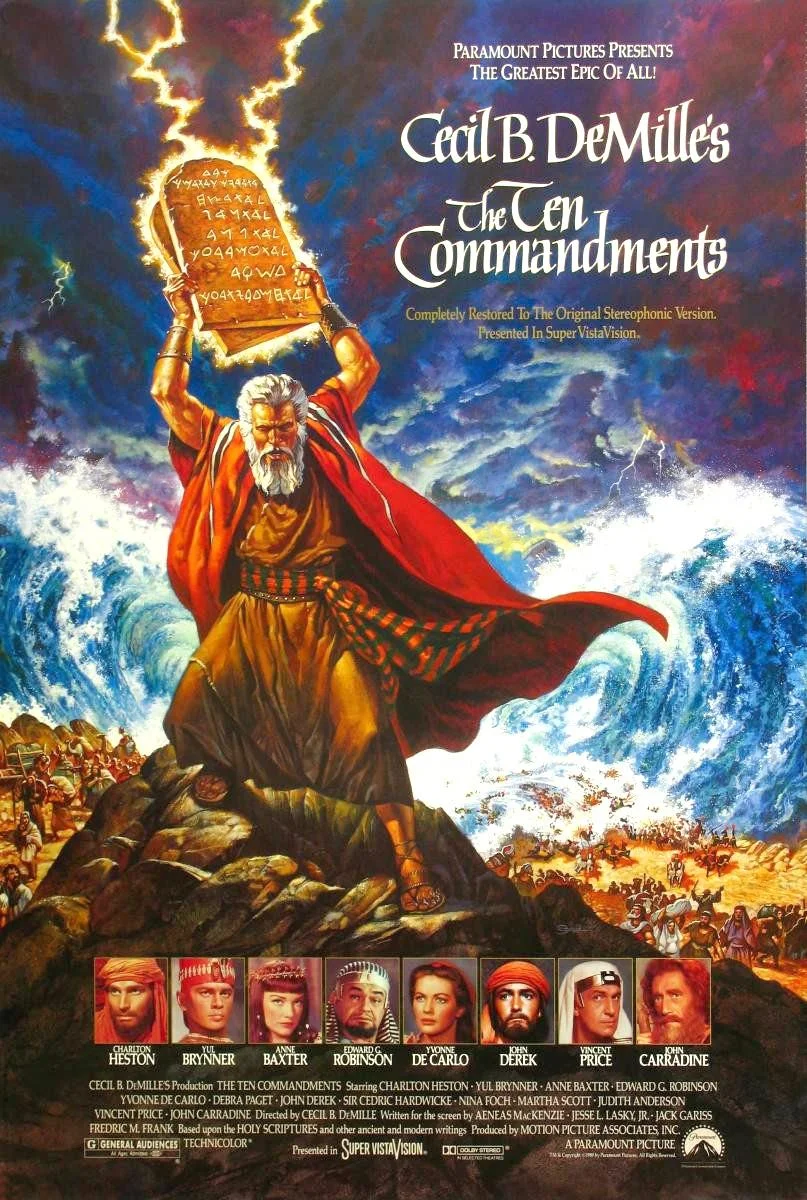 It's one of the finest movies made, a wondrous spectacle with outstanding hallmarks of what makes an epic.
The parting of the Red Sea by Moses is a sight to behold, the clincher for a lone Academy Award win in Special
Effects category, and it's still unbelievable for 1956. Charlton Heston will always be the King of Epics:
The Ten Commandments, Ben-Hur, and El Cid. Not to miss is the strong performance by
Yul Brynner.
It's one of the finest movies made, a wondrous spectacle with outstanding hallmarks of what makes an epic.
The parting of the Red Sea by Moses is a sight to behold, the clincher for a lone Academy Award win in Special
Effects category, and it's still unbelievable for 1956. Charlton Heston will always be the King of Epics:
The Ten Commandments, Ben-Hur, and El Cid. Not to miss is the strong performance by
Yul Brynner.
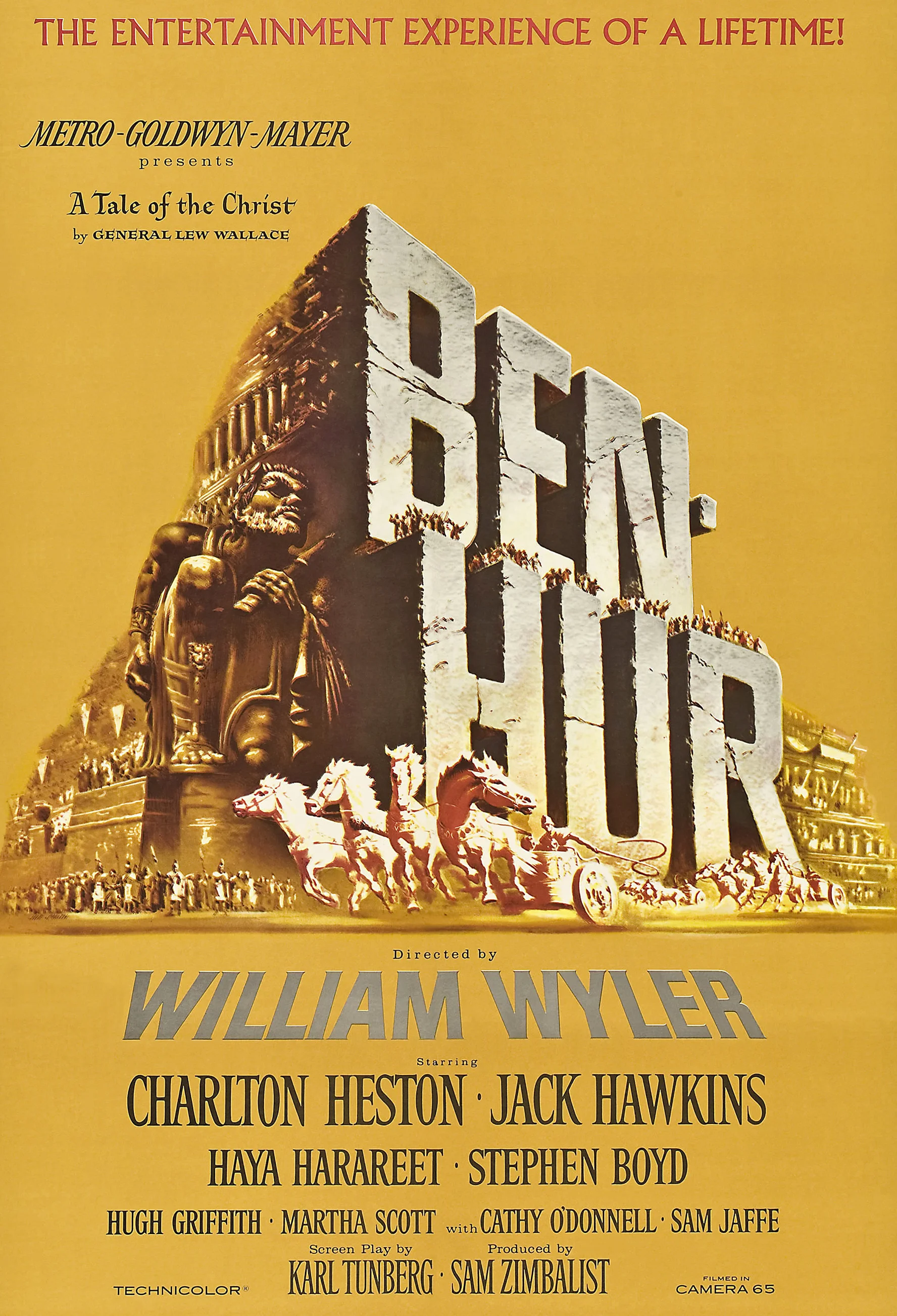 The epic of all epics, it's a big-budget picture amassing over 15,000 extras. Rome has never been so
glorious-looking since the fall of the empire. The greatest and the most breathtaking climax comes during
the chariot race. That scene is the reason alone the epic remains an insurmountable work of cinema. Although
it's the highlight of Ben-Hur, the movie is much more than that which includes the rise of Jesus Christ.
The epic of all epics, it's a big-budget picture amassing over 15,000 extras. Rome has never been so
glorious-looking since the fall of the empire. The greatest and the most breathtaking climax comes during
the chariot race. That scene is the reason alone the epic remains an insurmountable work of cinema. Although
it's the highlight of Ben-Hur, the movie is much more than that which includes the rise of Jesus Christ.
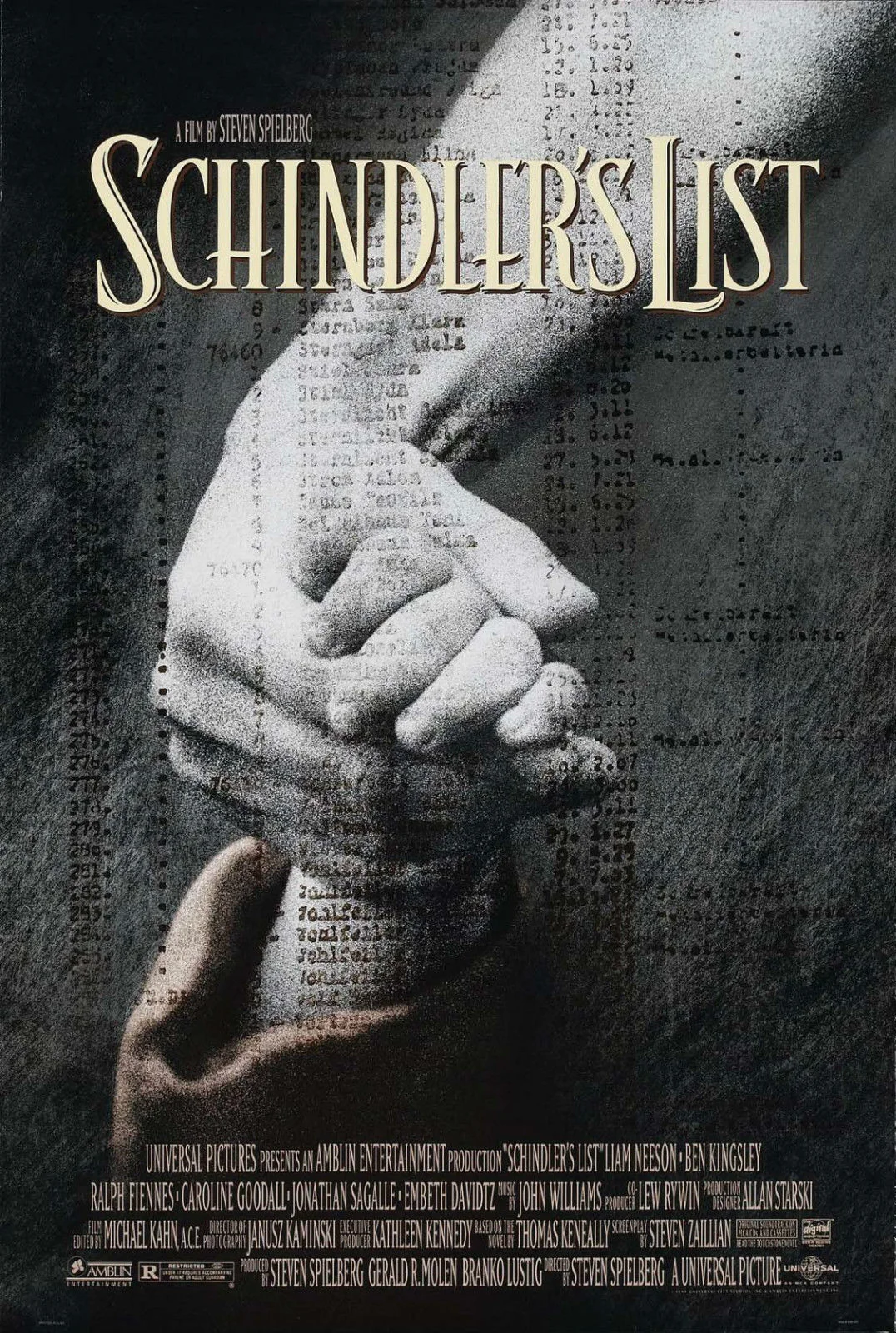 This is the best picture of the decade. It's what I see in books about the Holocaust: Nazi brutality in black
and white. Schindler's List is the stark truth of what happened in German-occupied Europe from 1933
to 1945. There are many powerful scenes that are beyond belief. Steven Spielberg should be praised for the
singular cinematic achievement.
This is the best picture of the decade. It's what I see in books about the Holocaust: Nazi brutality in black
and white. Schindler's List is the stark truth of what happened in German-occupied Europe from 1933
to 1945. There are many powerful scenes that are beyond belief. Steven Spielberg should be praised for the
singular cinematic achievement.
 Very few films have the distinction of being described as one of the most beautiful made, and
Chariots of Fire, without doubt, is such that. The opening scene of runners on the beach is absolutely
powerful and represents what the movie is all about: the celebration of human spirit. Honor and virtue are
routinely stressed and backed by actions.
Very few films have the distinction of being described as one of the most beautiful made, and
Chariots of Fire, without doubt, is such that. The opening scene of runners on the beach is absolutely
powerful and represents what the movie is all about: the celebration of human spirit. Honor and virtue are
routinely stressed and backed by actions.
 Sidney Poitier made history by becoming the first black person to win an Academy Award for Best Actor by
giving the best performance of his career in Lilies of the Field, one of the most heartwarming human
pictures made. The script was first given to Harry Belafonte, but he didn't want to be doing a bizarre picture
that takes place in the middle of nowhere with five crazy white German nuns. What a huge mistake he made.
Sidney Poitier made history by becoming the first black person to win an Academy Award for Best Actor by
giving the best performance of his career in Lilies of the Field, one of the most heartwarming human
pictures made. The script was first given to Harry Belafonte, but he didn't want to be doing a bizarre picture
that takes place in the middle of nowhere with five crazy white German nuns. What a huge mistake he made.
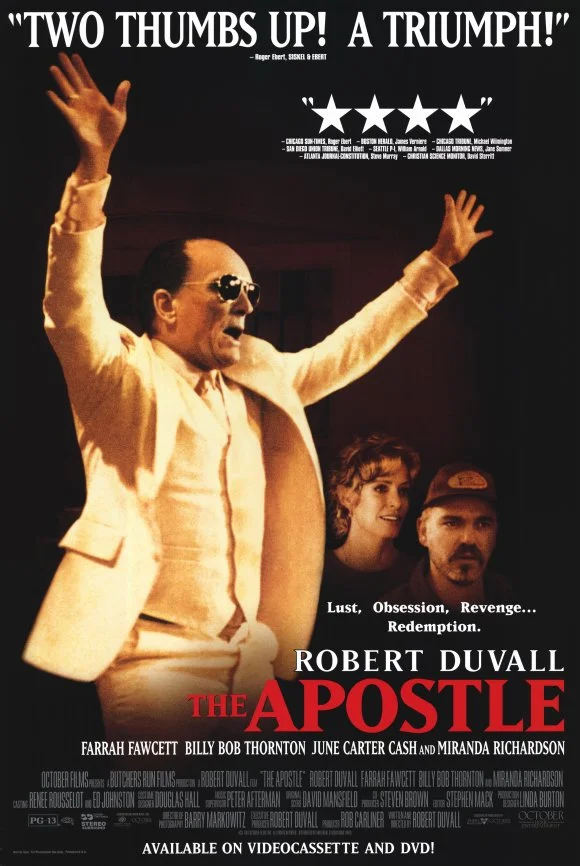 The Apostle paints a complex picture of a religion-obsessed criminal who uses the power of faith to
move human beings. A pure spiritual awakening with insights into the churchgoing culture in the Deep South,
there are many scenes that are moving. Robert Duvall is very sincere about it, and there's nothing overdone.
The Apostle paints a complex picture of a religion-obsessed criminal who uses the power of faith to
move human beings. A pure spiritual awakening with insights into the churchgoing culture in the Deep South,
there are many scenes that are moving. Robert Duvall is very sincere about it, and there's nothing overdone.
 "What an excellent day for an exorcism." Famous for many reasons, The Exorcist is one of the finest
horror films ever made. Linda Blair's transformation is something else to behold. Her character is so scary
that she's effective. Who can forget the taxi stop for Father Lankester Merrin in front of the house?
"What an excellent day for an exorcism." Famous for many reasons, The Exorcist is one of the finest
horror films ever made. Linda Blair's transformation is something else to behold. Her character is so scary
that she's effective. Who can forget the taxi stop for Father Lankester Merrin in front of the house?
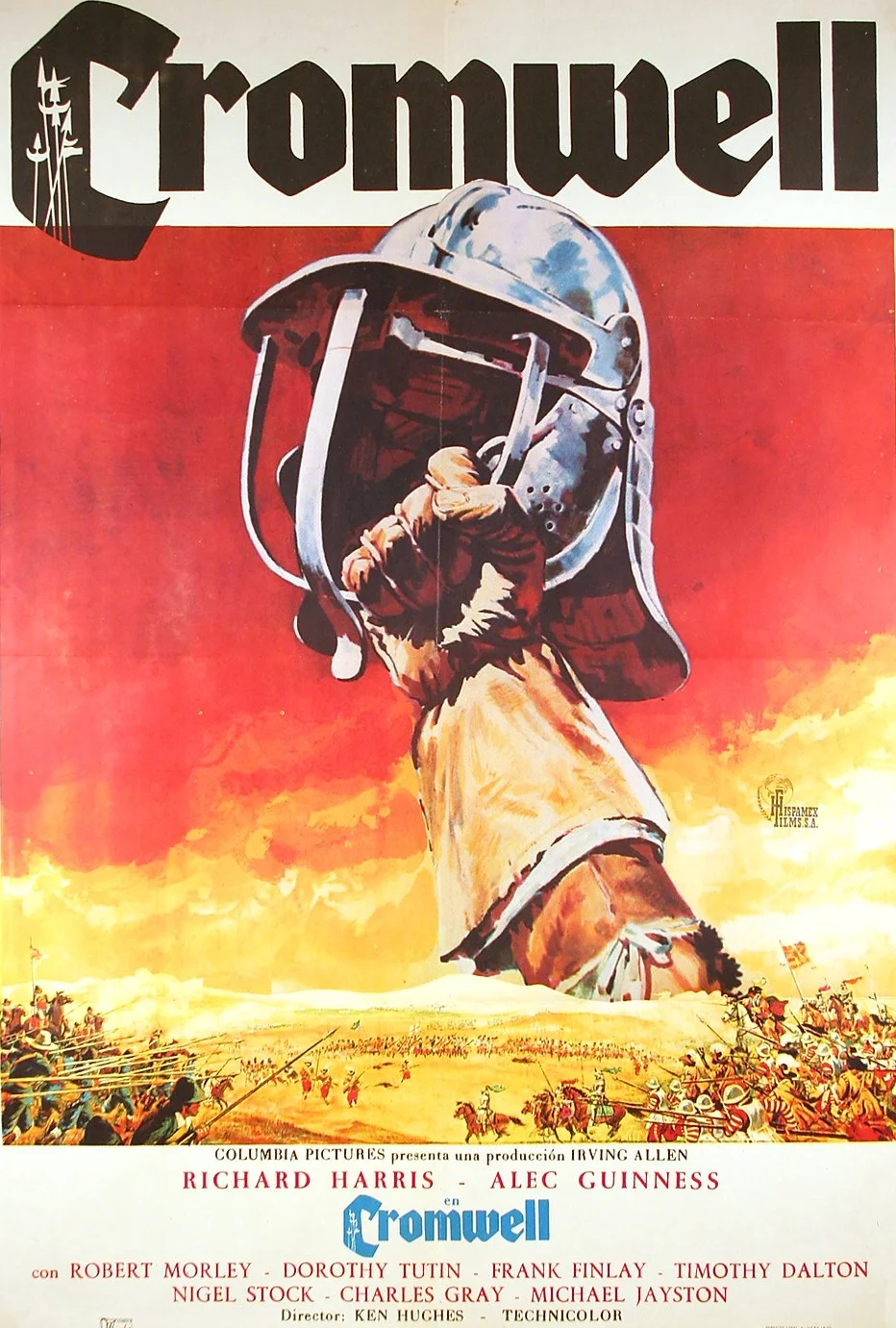 This is British history at its finest with some of the best acting and most terrific battle scenes ever. Because
of the thousands of extras and warlike atmosphere, it's reminiscent of Braveheart minus a love story.
The British production deservingly won an Oscar for Best Costume Design with approximately 4,000 costumes,
16,000 historical props, and thousands of wigs which were ordered from all over Europe.
This is British history at its finest with some of the best acting and most terrific battle scenes ever. Because
of the thousands of extras and warlike atmosphere, it's reminiscent of Braveheart minus a love story.
The British production deservingly won an Oscar for Best Costume Design with approximately 4,000 costumes,
16,000 historical props, and thousands of wigs which were ordered from all over Europe.
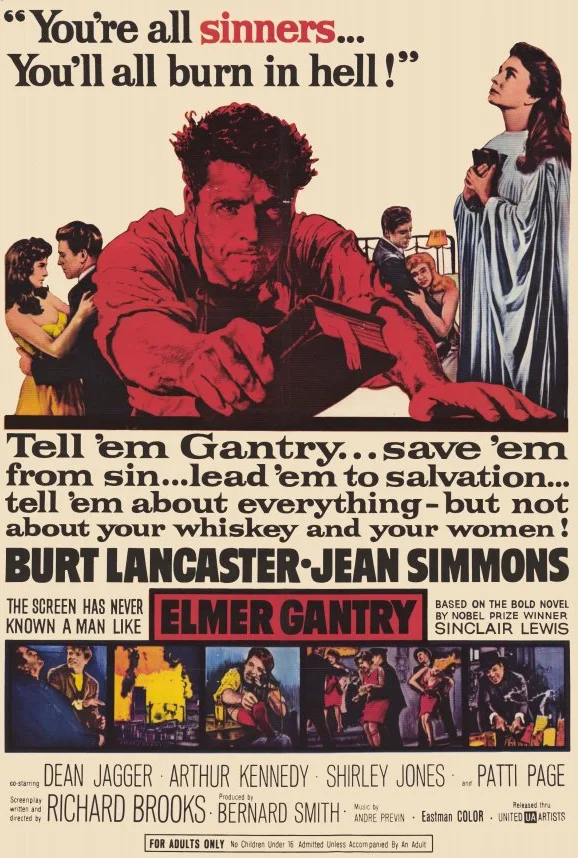 I didn't think it was possible for Hollywood to produce a film that makes a total mockery of religion from
the atheistic point of view. Well, they did it for Sinclair Lewis' book entitled Elmer Gantry. While
there are many outstanding scenes, Burt Lancaster gives the most fiery performance of his career. He has never
been better, winning the Oscar. This is a different league for him. Sometimes, comparing Burt Lancaster with
Marlon Brando isn't far off.
I didn't think it was possible for Hollywood to produce a film that makes a total mockery of religion from
the atheistic point of view. Well, they did it for Sinclair Lewis' book entitled Elmer Gantry. While
there are many outstanding scenes, Burt Lancaster gives the most fiery performance of his career. He has never
been better, winning the Oscar. This is a different league for him. Sometimes, comparing Burt Lancaster with
Marlon Brando isn't far off.
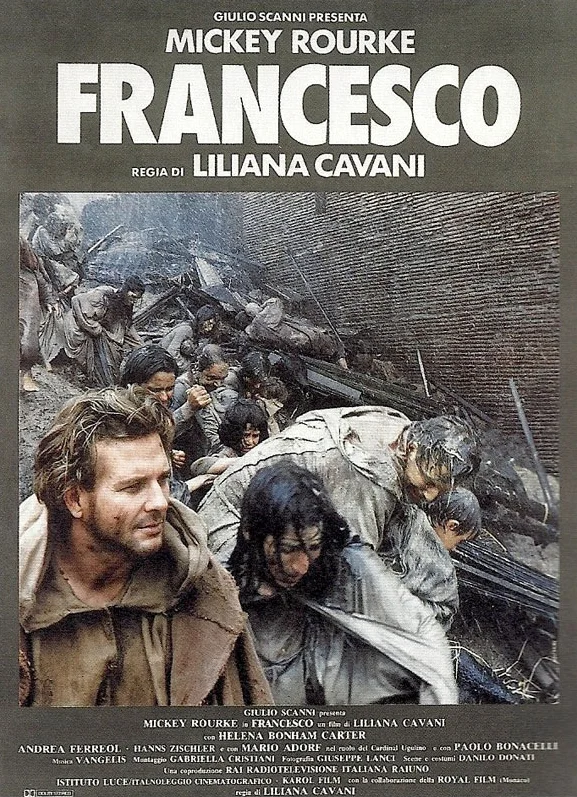 It's a powerfully inspiring movie about Francis of Assissi, the patron saint of animals and the environment.
He founded a Christian religious order called Franciscan and was canonized as a saint for his devotion to God
by expressing love for all of God's creation, caring for the poor and sick including those with leprosy, and
preaching sermons to animals.
It's a powerfully inspiring movie about Francis of Assissi, the patron saint of animals and the environment.
He founded a Christian religious order called Franciscan and was canonized as a saint for his devotion to God
by expressing love for all of God's creation, caring for the poor and sick including those with leprosy, and
preaching sermons to animals.
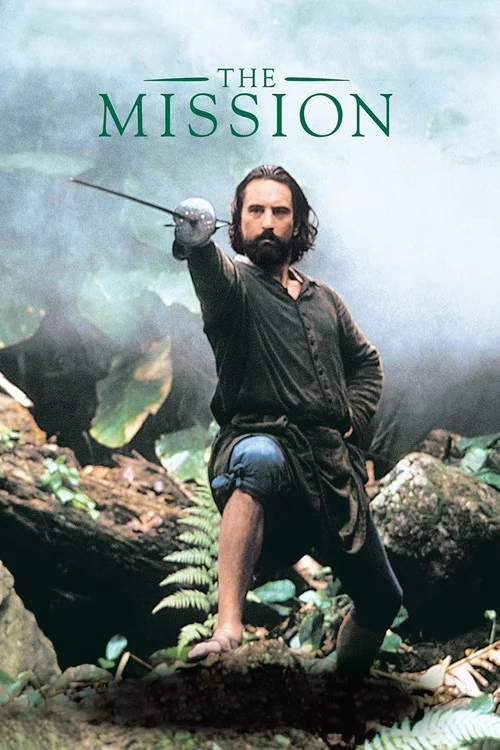 The Mission is a powerful film about the plight of the Guaraní people under the heel of Portuguese and
Spanish colonizers. The reality is underscored by the loss of their homes because the Portuguese and Spanish
viewed the land as an imperialistic opportunity to expand their empire while harvesting it for resources, most
especially gold. There's a display of concern by the Jesuits, wanting to save them from a predictable wipeout
of their culture and habitat.
The Mission is a powerful film about the plight of the Guaraní people under the heel of Portuguese and
Spanish colonizers. The reality is underscored by the loss of their homes because the Portuguese and Spanish
viewed the land as an imperialistic opportunity to expand their empire while harvesting it for resources, most
especially gold. There's a display of concern by the Jesuits, wanting to save them from a predictable wipeout
of their culture and habitat.
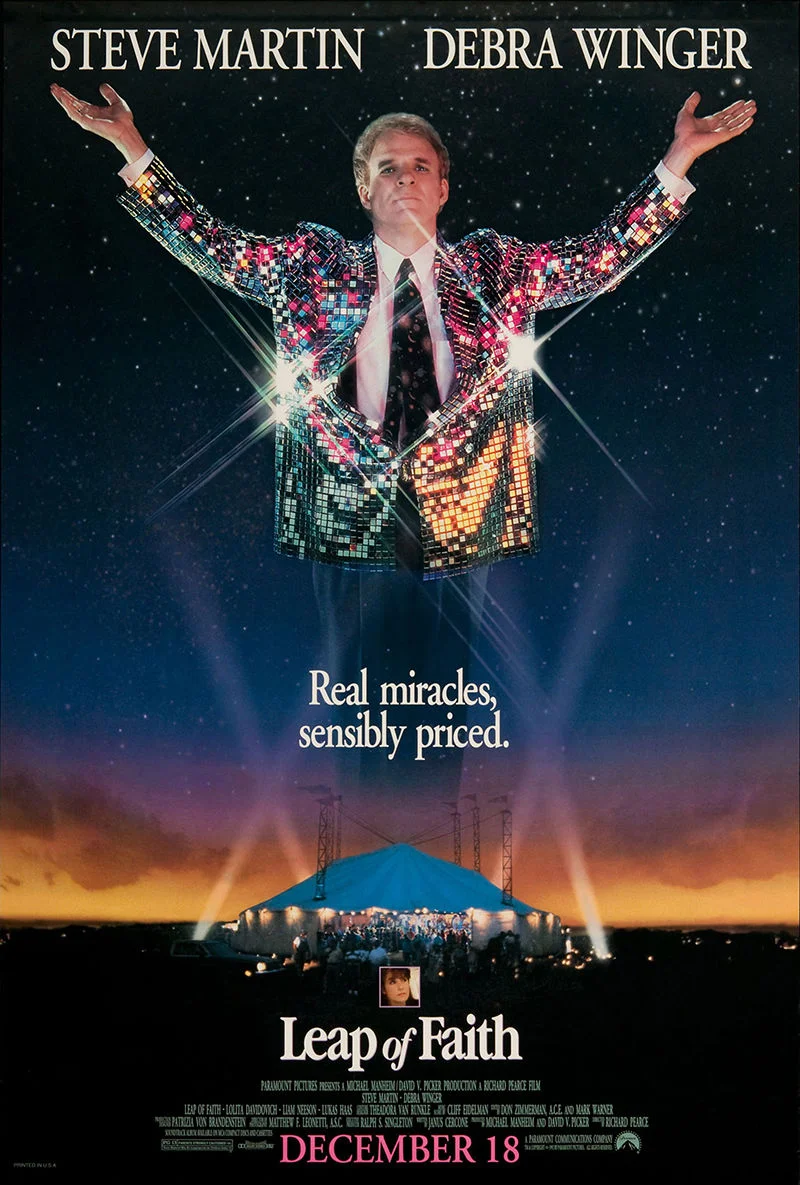 Leap of Faith is an appropriate title for an Elmer Gantry-like film because it's all about placing
all of one's faith on a pile of bullshit, hence its tagline "Real miracles, sensibly priced." Steve Martin's
performance is fantastic. What a convincing con man he plays as Jonas Nightengale.
Leap of Faith is an appropriate title for an Elmer Gantry-like film because it's all about placing
all of one's faith on a pile of bullshit, hence its tagline "Real miracles, sensibly priced." Steve Martin's
performance is fantastic. What a convincing con man he plays as Jonas Nightengale.
 The Citizen Kane of horror films? You got that right. The genius behind a horror film, as evidenced in
Don Siegel's Invasion of the Body Snatchers, is to make the world seemingly ordinary that's free of
monsters, blood, gore, etc. Yet there's still something fundamentally wrong with the picture. That's why
The Wicker Man succeeds, thanks to Anthony Shaffer's screenplay.
The Citizen Kane of horror films? You got that right. The genius behind a horror film, as evidenced in
Don Siegel's Invasion of the Body Snatchers, is to make the world seemingly ordinary that's free of
monsters, blood, gore, etc. Yet there's still something fundamentally wrong with the picture. That's why
The Wicker Man succeeds, thanks to Anthony Shaffer's screenplay.
 One of the strangest things I've noticed in regard to Martin Luther King, Jr., is everybody knows who he was,
but most don't have any idea of what he specifically did or the events he was involved with. Therefore,
King does an outstanding job of summarizing them all in a five-hour biopic with an exceptional
performance by Paul Winfield.
One of the strangest things I've noticed in regard to Martin Luther King, Jr., is everybody knows who he was,
but most don't have any idea of what he specifically did or the events he was involved with. Therefore,
King does an outstanding job of summarizing them all in a five-hour biopic with an exceptional
performance by Paul Winfield.
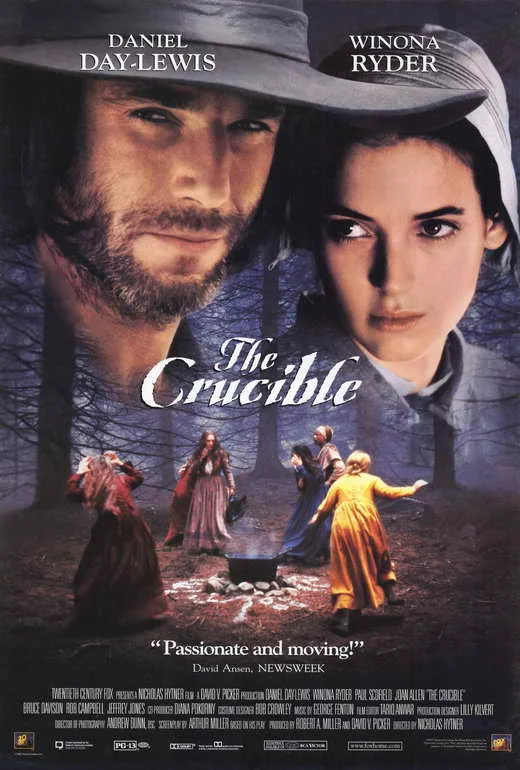 It's hard to find any fault in The Crucible which is as good as the play per se. The viewers need to
keep in mind everything that happened in the Salem Witch Trials predates the passage of the U.S. Constitution
by a full century. Not only was witchcraft being practiced in Colonial America, but it also played a big part
in Europe for centuries. Naturally so, being nugatory and senseless, it's a good lesson as to why a sound judicial
system is necessary.
It's hard to find any fault in The Crucible which is as good as the play per se. The viewers need to
keep in mind everything that happened in the Salem Witch Trials predates the passage of the U.S. Constitution
by a full century. Not only was witchcraft being practiced in Colonial America, but it also played a big part
in Europe for centuries. Naturally so, being nugatory and senseless, it's a good lesson as to why a sound judicial
system is necessary.
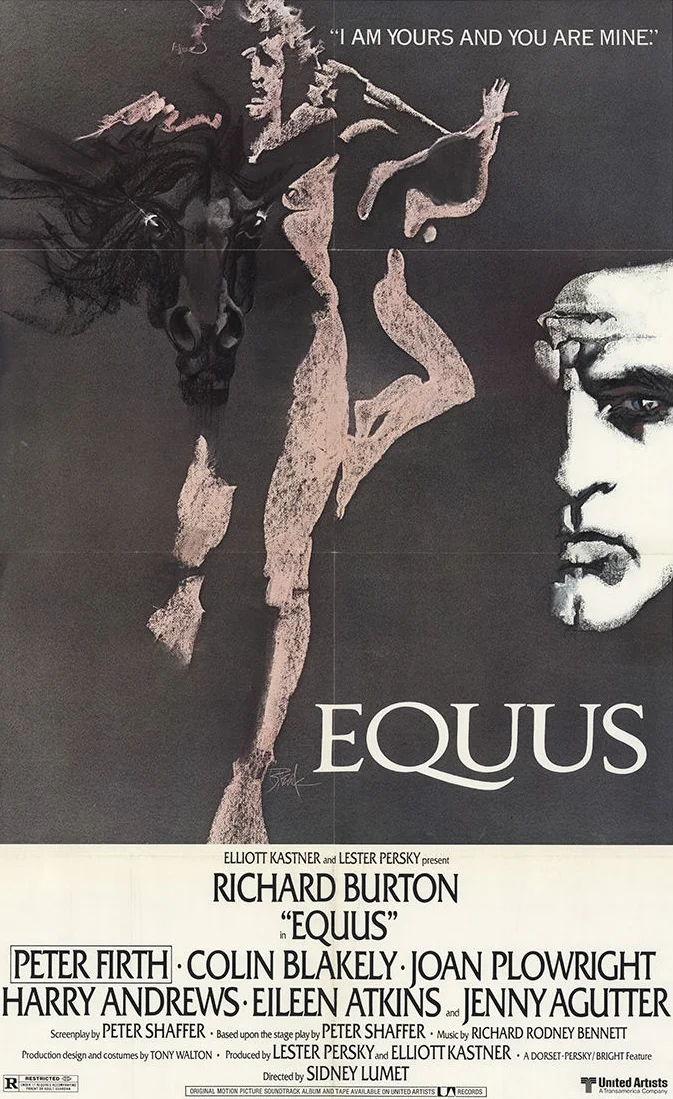 Brilliant writing, brilliant acting, and brilliant story. After sloshing around in the world of alcohol and
therefore wasting his talent for years, Richard Burton makes the greatest comeback of all time by appearing in
Equus as psychiatrist Martin Dysart by giving a fiery but focused performance. His riveting soliloquies
are the stuff of greats. On the other hand, Peter Firth is unforgettable as the tormented boy.
Brilliant writing, brilliant acting, and brilliant story. After sloshing around in the world of alcohol and
therefore wasting his talent for years, Richard Burton makes the greatest comeback of all time by appearing in
Equus as psychiatrist Martin Dysart by giving a fiery but focused performance. His riveting soliloquies
are the stuff of greats. On the other hand, Peter Firth is unforgettable as the tormented boy.
 Pretty much the film to foretell what's to come, The Boys of St. Vincent highlights the cover-up of
child sexual abuse at the hands of priests and their leaders. It's not just the Catholic Church but every
religion denomination that's part of the problem. The setting may be Newfoundland, Canada, but this has happened
all over the world for centuries. Henry Czerny, as Brother Peter Lavin, is pure evil. Not to miss is the
follow-up of the consequences fifteen years later.
Pretty much the film to foretell what's to come, The Boys of St. Vincent highlights the cover-up of
child sexual abuse at the hands of priests and their leaders. It's not just the Catholic Church but every
religion denomination that's part of the problem. The setting may be Newfoundland, Canada, but this has happened
all over the world for centuries. Henry Czerny, as Brother Peter Lavin, is pure evil. Not to miss is the
follow-up of the consequences fifteen years later.
 One of the all-time great political fantasy pictures made, what had transpired either has happened or will
happen. The use of "Gabriel" in the title is meant to signify the change in government was initially approved
by a divine authority. A big fan of what's a hit piece against Herbert Hoover, FDR took advantage of many elements
that would be part of his New Deal package. The warning at the end of what to expect with nuclear weapons will
be demonstrated twelve years later in Hiroshima and Nagasaki.
One of the all-time great political fantasy pictures made, what had transpired either has happened or will
happen. The use of "Gabriel" in the title is meant to signify the change in government was initially approved
by a divine authority. A big fan of what's a hit piece against Herbert Hoover, FDR took advantage of many elements
that would be part of his New Deal package. The warning at the end of what to expect with nuclear weapons will
be demonstrated twelve years later in Hiroshima and Nagasaki.
 Heaven Knows, Mr. Allison is a superb Robinson Crusoe type of picture that features a Marine and a nun
hiding from the Japanese soldiers during WWII. The best scene is when Robert Mitchum, in his camouflaged face,
snuck inside the storeroom of canned victuals but got trapped at the top of the shelf. It's done with high
tension, making his performance highly memorable.
Heaven Knows, Mr. Allison is a superb Robinson Crusoe type of picture that features a Marine and a nun
hiding from the Japanese soldiers during WWII. The best scene is when Robert Mitchum, in his camouflaged face,
snuck inside the storeroom of canned victuals but got trapped at the top of the shelf. It's done with high
tension, making his performance highly memorable.
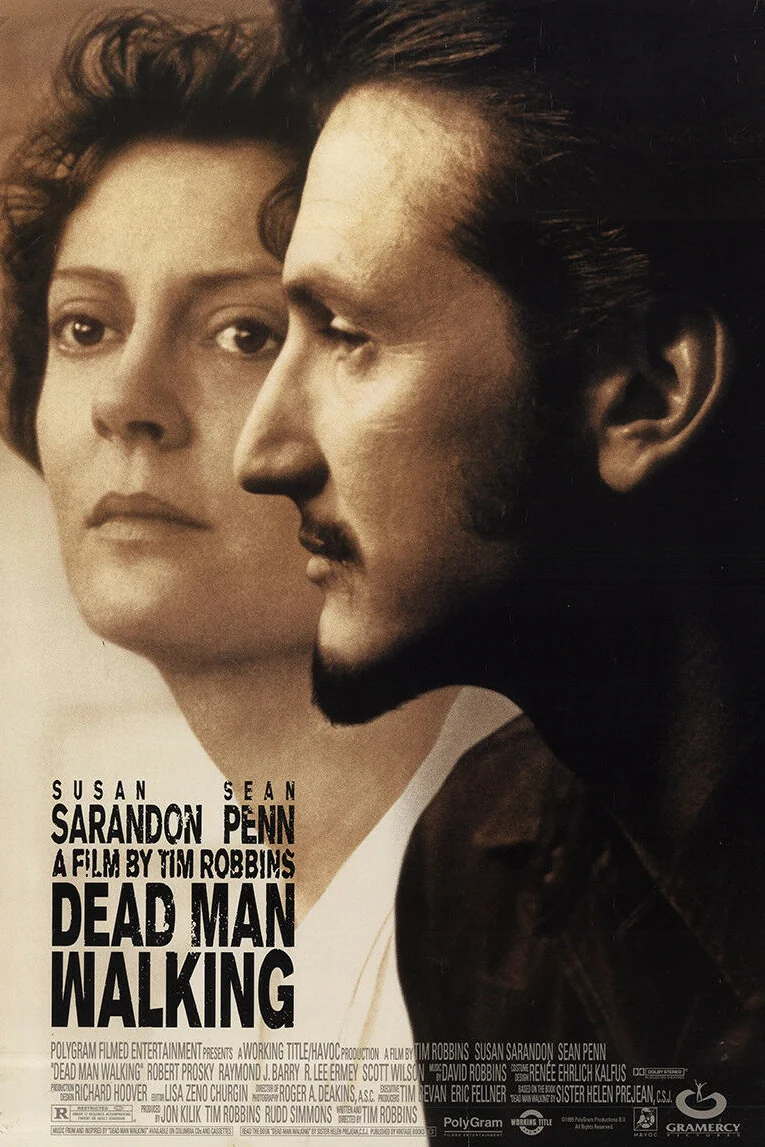 Dead Man Walking isn't about changing people's minds about capital punishment but rather offers a
realistic yet neutral insight into how the death sentence is carried out at the Louisiana State Penitentiary.
There are many powerful scenes with exceptional performances by Sean Penn and Susan Sarandon.
Dead Man Walking isn't about changing people's minds about capital punishment but rather offers a
realistic yet neutral insight into how the death sentence is carried out at the Louisiana State Penitentiary.
There are many powerful scenes with exceptional performances by Sean Penn and Susan Sarandon.
 When the Vietnam War was happening, Muhammad Ali refused to be drafted into the U.S. Army, citing his
religious beliefs. They thought he could do some good by promoting morale, but he still refused to be
part of it. This move cost Muhammad Ali four years of his prime in boxing, and he was 25 years old. It's
an overlooked part of his career.
When the Vietnam War was happening, Muhammad Ali refused to be drafted into the U.S. Army, citing his
religious beliefs. They thought he could do some good by promoting morale, but he still refused to be
part of it. This move cost Muhammad Ali four years of his prime in boxing, and he was 25 years old. It's
an overlooked part of his career.
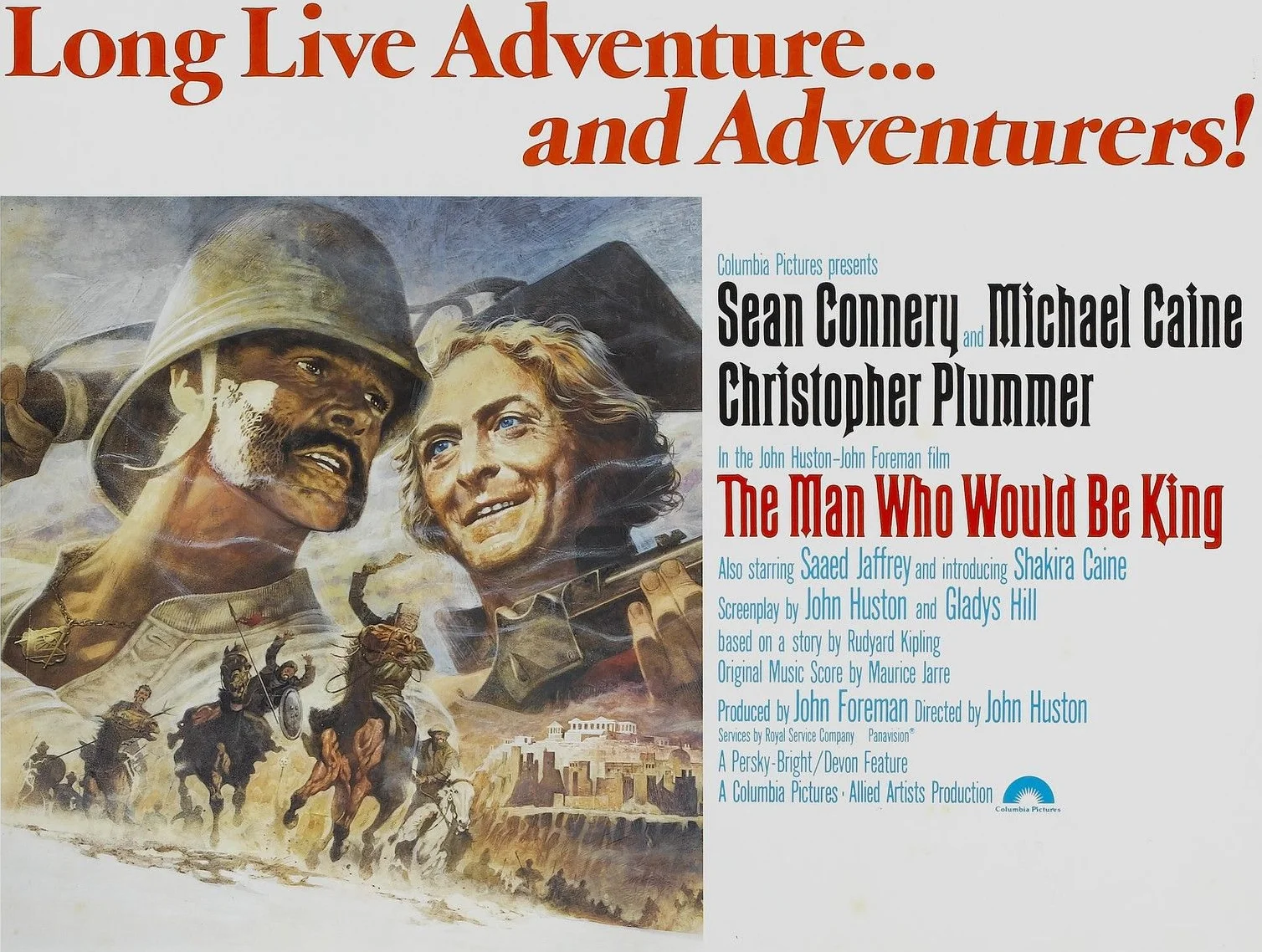 The Man Who Would Be King is first-rate entertainment at the hands of John Huston. Do not ever expect
anything less from him because he always has a great yarn to tell. Michael Caine and Sean Connery deliver some
of the best acting of their careers. The ending puts the final stamp on the film's greatness.
The Man Who Would Be King is first-rate entertainment at the hands of John Huston. Do not ever expect
anything less from him because he always has a great yarn to tell. Michael Caine and Sean Connery deliver some
of the best acting of their careers. The ending puts the final stamp on the film's greatness.
 In the quest of the Holy Grail, Indiana Jones and the Last Crusade is a perfect mix of everything:
dialogue, story, subplots, rich characters, and beautiful cinematography. It takes talent to make a movie like
that, even on the neo-noir level. Petra, which is located in Jordan, is an amazing sight.
In the quest of the Holy Grail, Indiana Jones and the Last Crusade is a perfect mix of everything:
dialogue, story, subplots, rich characters, and beautiful cinematography. It takes talent to make a movie like
that, even on the neo-noir level. Petra, which is located in Jordan, is an amazing sight.
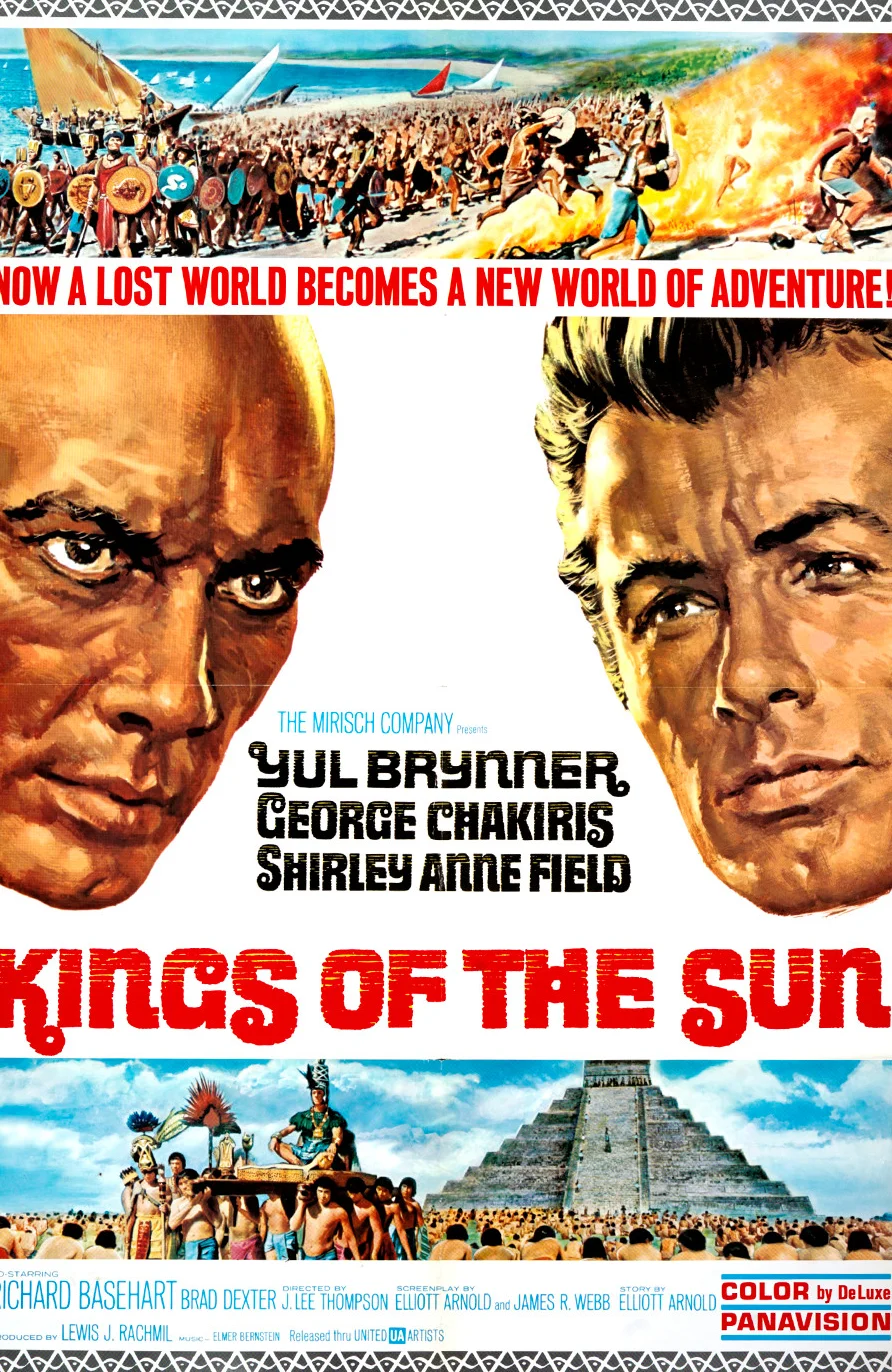 I'm against the idea of a white thespian who's brownfaced to play a foreign character. But, based on the
strength of Yul Brynner's acting, I'm going to let it slide. The truth is: without star power,
Kings of the Sun would've never been made. It may be the only Hollywood film about the Mayans which
is saying something. The nice part is the sight of Chichén Itzá which is the real thing.
I'm against the idea of a white thespian who's brownfaced to play a foreign character. But, based on the
strength of Yul Brynner's acting, I'm going to let it slide. The truth is: without star power,
Kings of the Sun would've never been made. It may be the only Hollywood film about the Mayans which
is saying something. The nice part is the sight of Chichén Itzá which is the real thing.
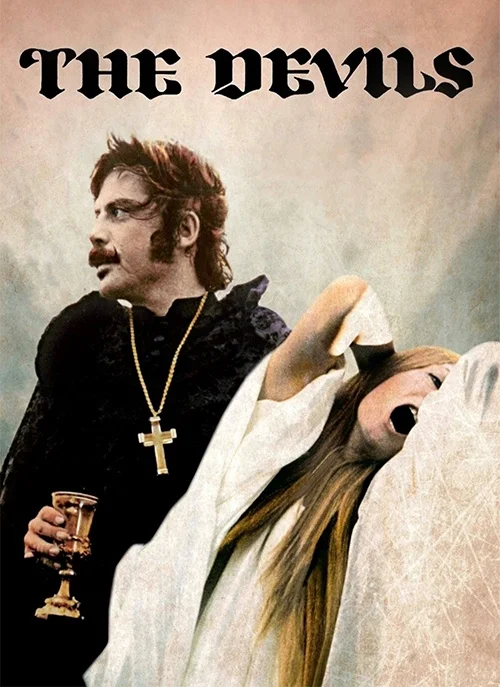 Madman Ken Russell made a lot of terrible and absurd films, but The Devils is by far the best of his
career. A lot of it is reminiscent of The Crucible. Mostly based on The Devils of Loudun by
Aldous Huxley about what happened to Father Urbain Grandier, the events as shown in the film occurred sixty
years before the Salem Witch Trials.
Madman Ken Russell made a lot of terrible and absurd films, but The Devils is by far the best of his
career. A lot of it is reminiscent of The Crucible. Mostly based on The Devils of Loudun by
Aldous Huxley about what happened to Father Urbain Grandier, the events as shown in the film occurred sixty
years before the Salem Witch Trials.
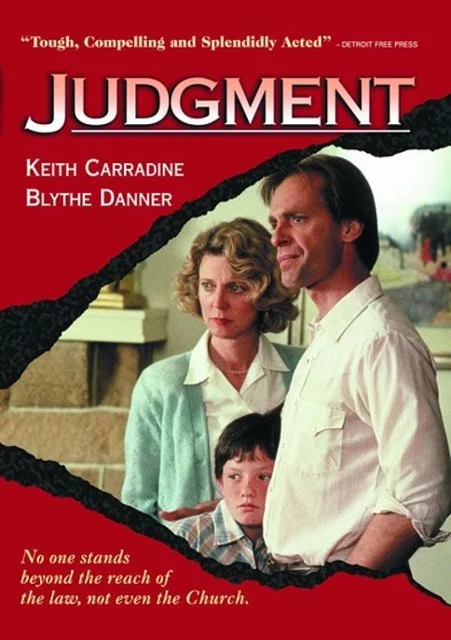 Judgment is a powerful made-for-TV picture about child sex abuse at the hands of priests that was
covered up by the Catholic Church. The fact that it was made in 1990 says a great deal in terms of predicting
the future. This is the reality now, and that's why religion is on the decline worldwide. People, especially
of the recent generations, have simply woken up and decided religion is nothing but a man-made, money-making fraud.
Judgment is a powerful made-for-TV picture about child sex abuse at the hands of priests that was
covered up by the Catholic Church. The fact that it was made in 1990 says a great deal in terms of predicting
the future. This is the reality now, and that's why religion is on the decline worldwide. People, especially
of the recent generations, have simply woken up and decided religion is nothing but a man-made, money-making fraud.
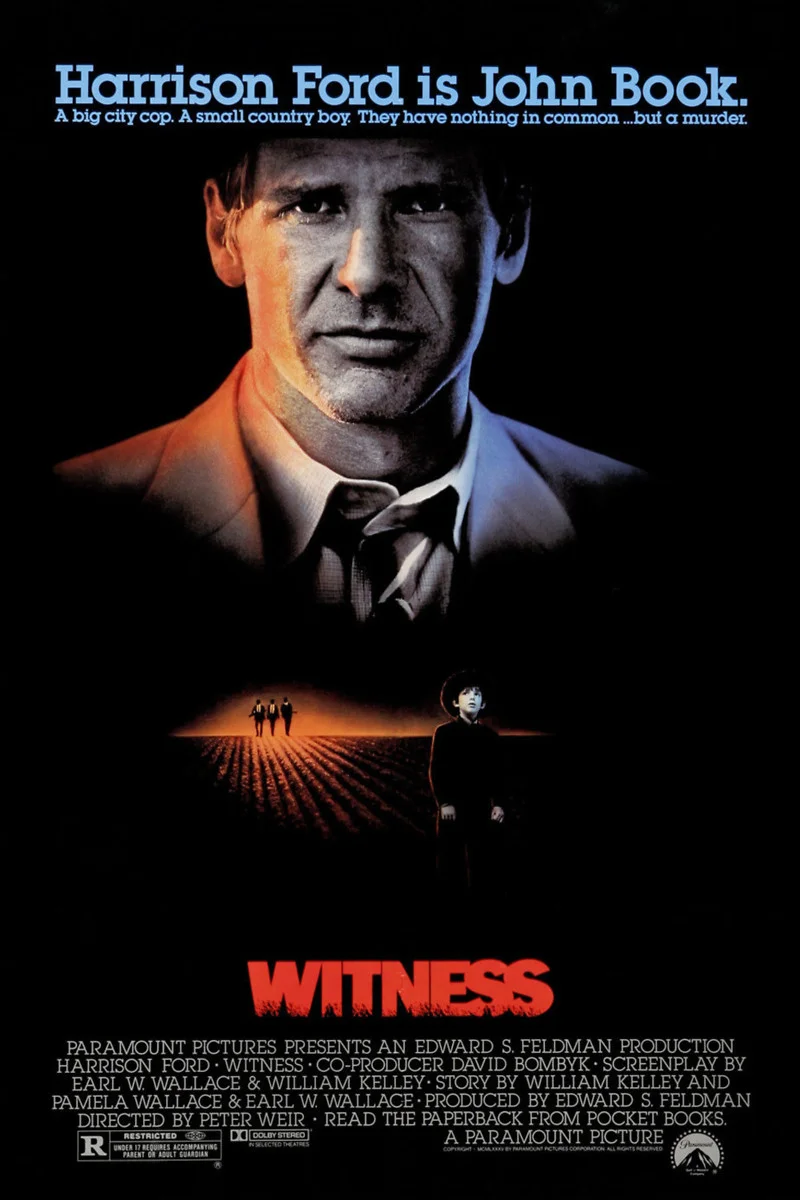 It's a well-made picture that's part policier and part Amish. There's no disrespect going on. Of course,
a culture clash exists which is impossible to avoid. The look of some scenes shot is similar to the 17th
century paintings by Dutch Masters, scoring an Oscar nomination for John Seale in Best Cinematography.
It's a well-made picture that's part policier and part Amish. There's no disrespect going on. Of course,
a culture clash exists which is impossible to avoid. The look of some scenes shot is similar to the 17th
century paintings by Dutch Masters, scoring an Oscar nomination for John Seale in Best Cinematography.
 Just like the Nobel Prize-winning book by John Steinbeck, The Grapes of Wrath is a historically important
picture that depicts the great migration caused by the Dust Bowl during the 30's, the class struggles between
the haves and the have-nots, and workers' rights. It's just powerful stuff along with the superlative
performances by Henry Fonda, Jane Darwell, and John Carradine.
Just like the Nobel Prize-winning book by John Steinbeck, The Grapes of Wrath is a historically important
picture that depicts the great migration caused by the Dust Bowl during the 30's, the class struggles between
the haves and the have-nots, and workers' rights. It's just powerful stuff along with the superlative
performances by Henry Fonda, Jane Darwell, and John Carradine.
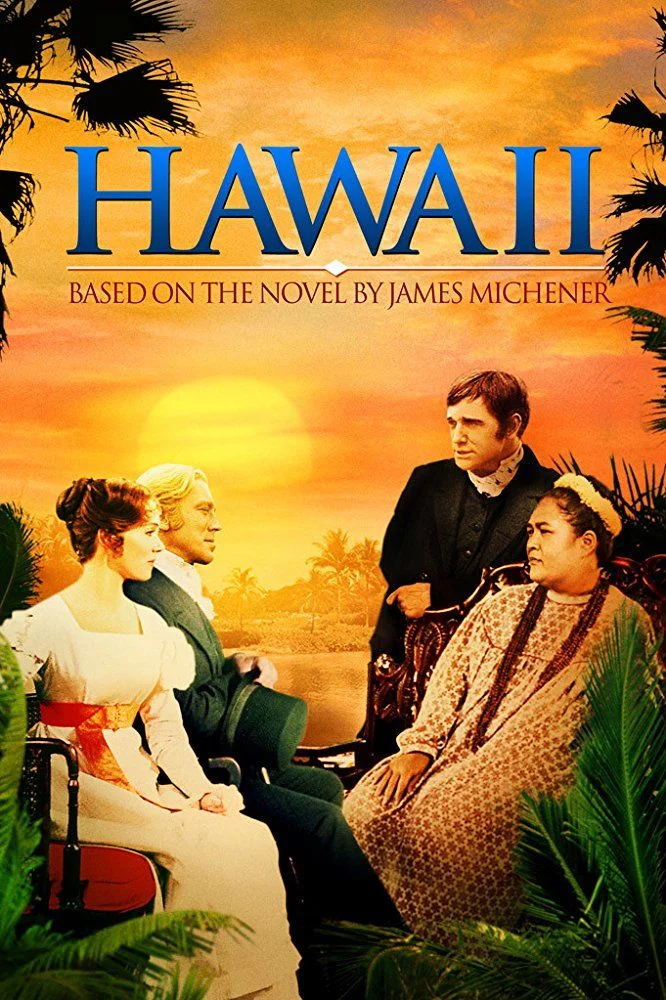 I was thinking of Columbus' voyage to the New World and how it ruined many cultures in the western hemisphere
by indirectly introducing disease, imperialism, and eradication. Well, Hawaii is like that. An added
effect to that idea is the usage of missionaries in which I've found controversial because of their insistence
on the natives that accepting Christianity is the only way to live without sin.
I was thinking of Columbus' voyage to the New World and how it ruined many cultures in the western hemisphere
by indirectly introducing disease, imperialism, and eradication. Well, Hawaii is like that. An added
effect to that idea is the usage of missionaries in which I've found controversial because of their insistence
on the natives that accepting Christianity is the only way to live without sin.
 You got to love Peter O'Toole and Richard Burton having meaty roles in the same film, and for them, it's
Becket. Their scenes are what moves this film very well. It received stupendous twelve Oscar nominations,
but the only winner here is Edward Anhalt for the adapted screenplay which is thoroughly deserving. If not for
his lines, Peter O'Toole would've never been on another planet.
You got to love Peter O'Toole and Richard Burton having meaty roles in the same film, and for them, it's
Becket. Their scenes are what moves this film very well. It received stupendous twelve Oscar nominations,
but the only winner here is Edward Anhalt for the adapted screenplay which is thoroughly deserving. If not for
his lines, Peter O'Toole would've never been on another planet.